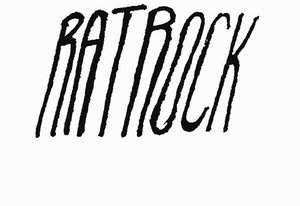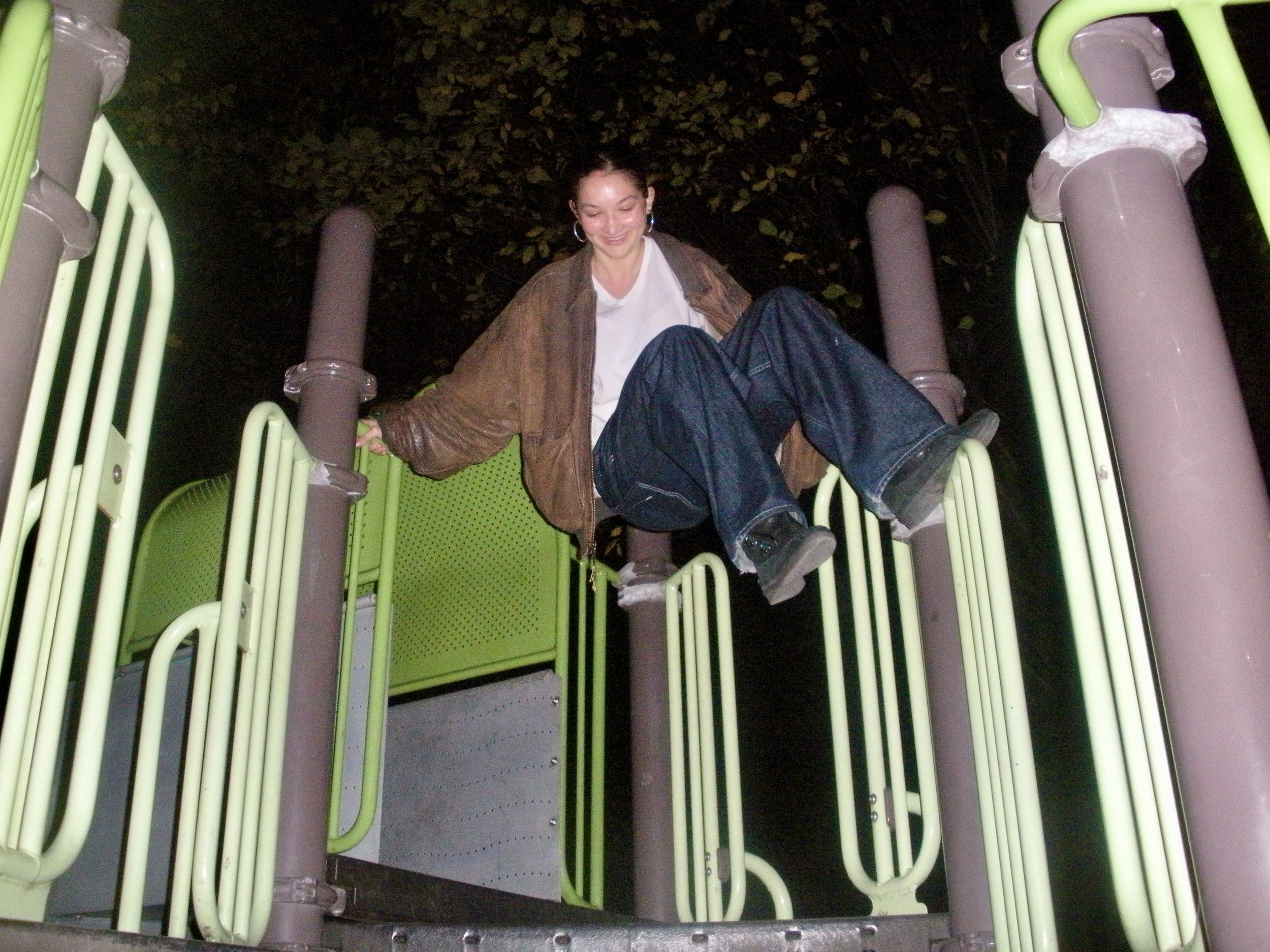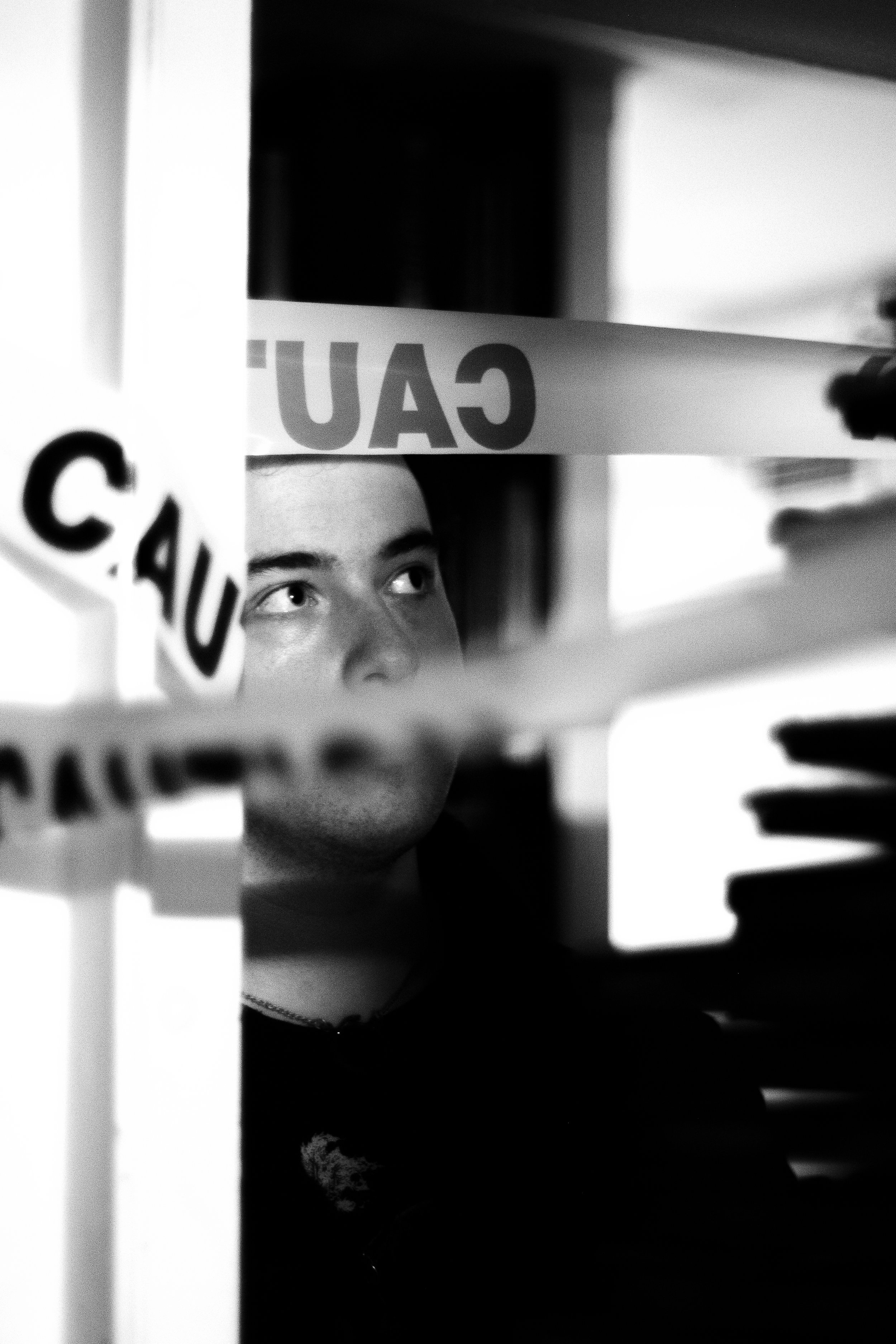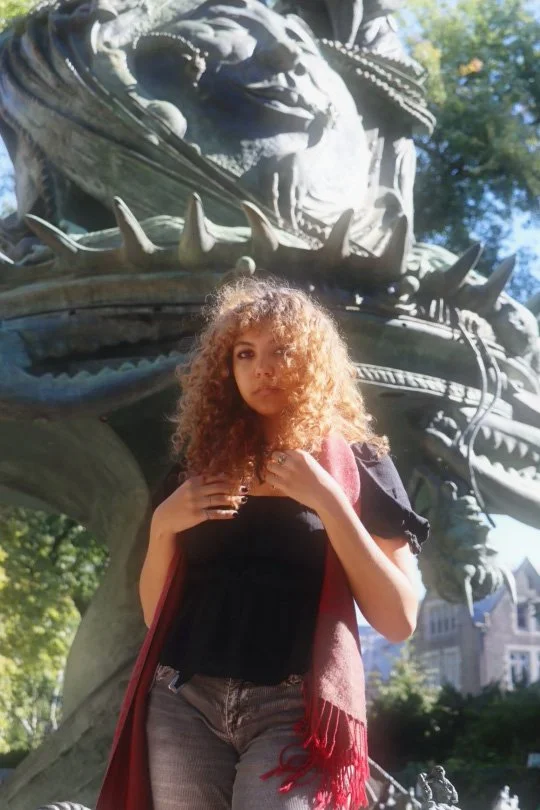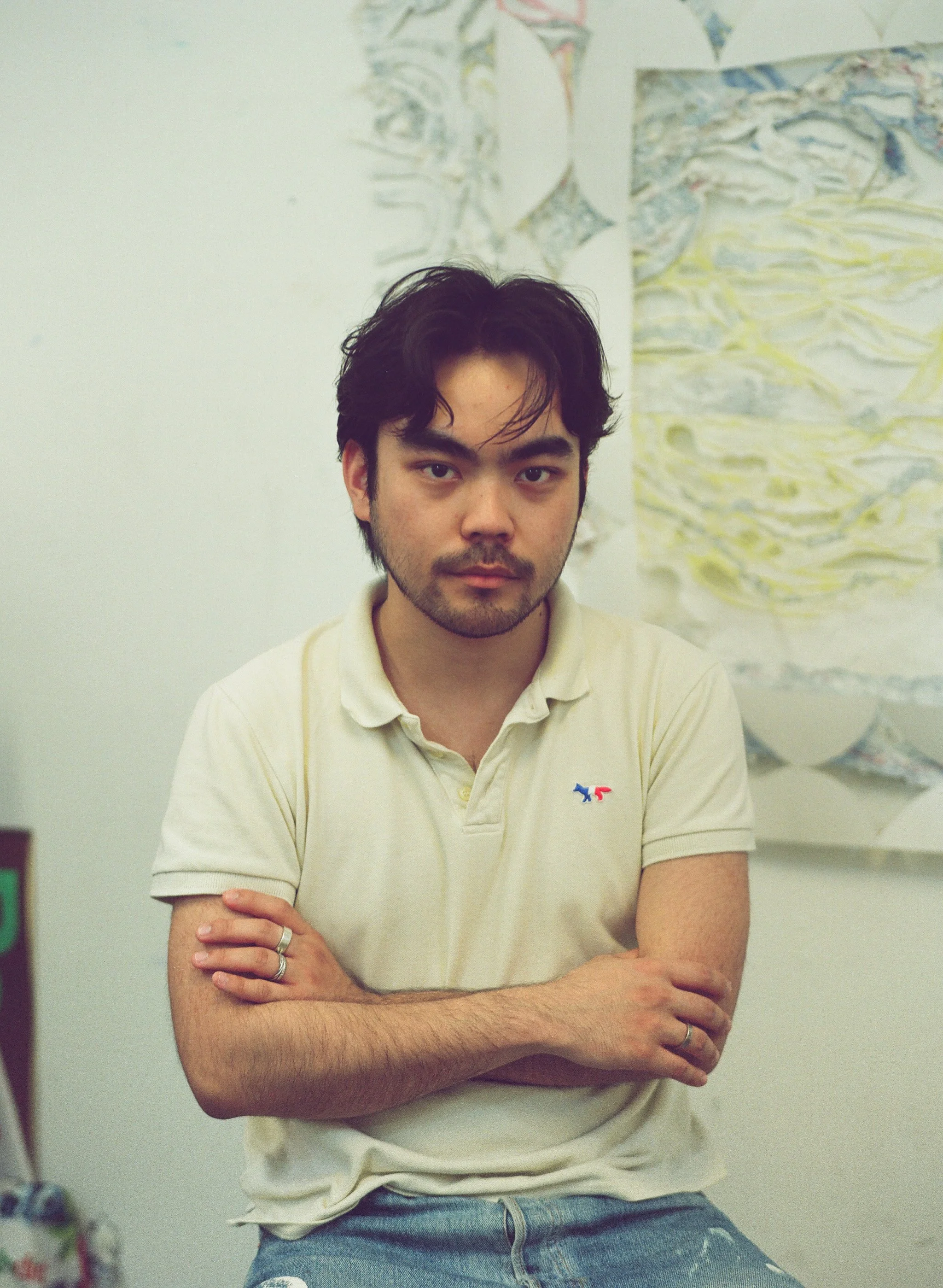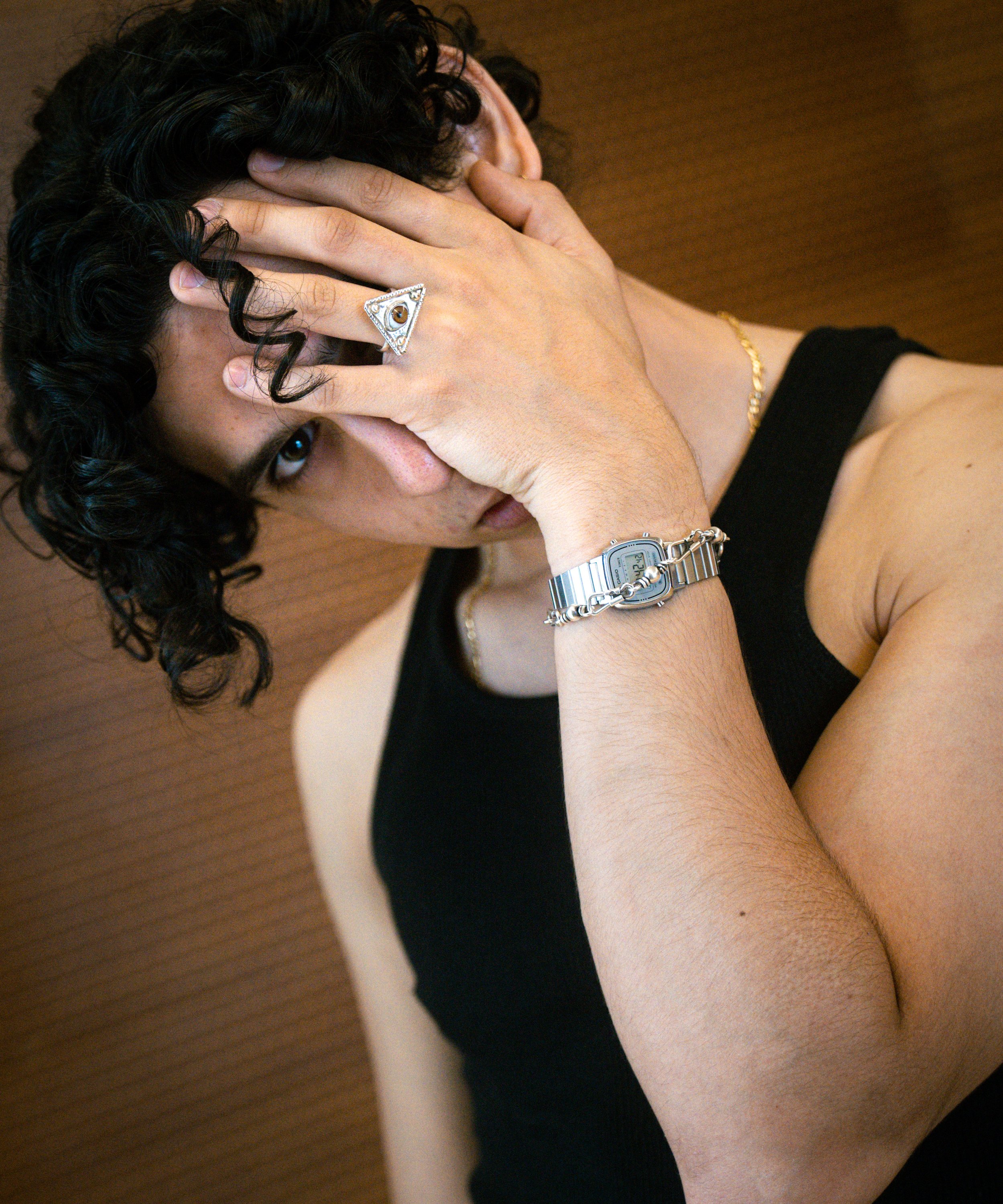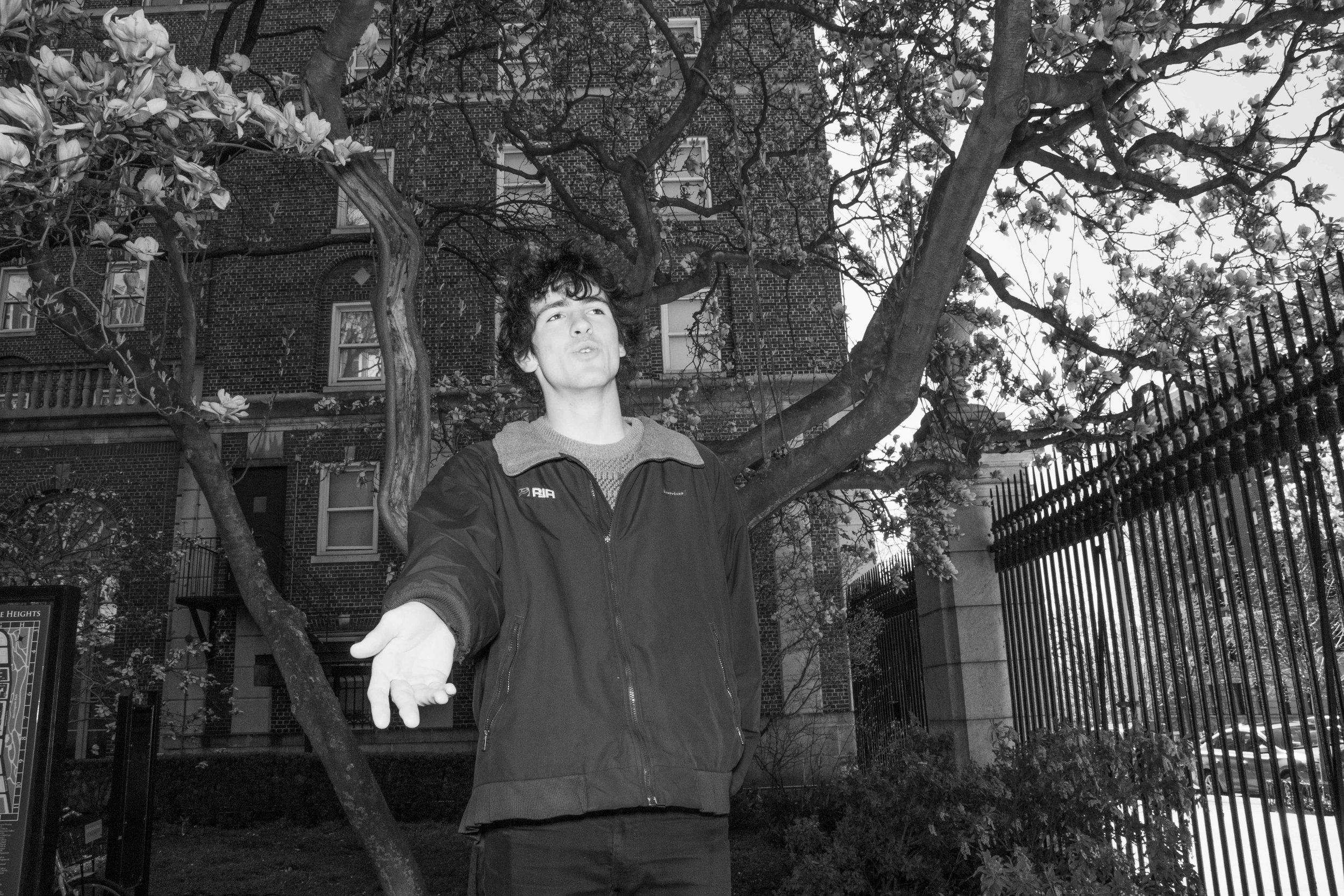
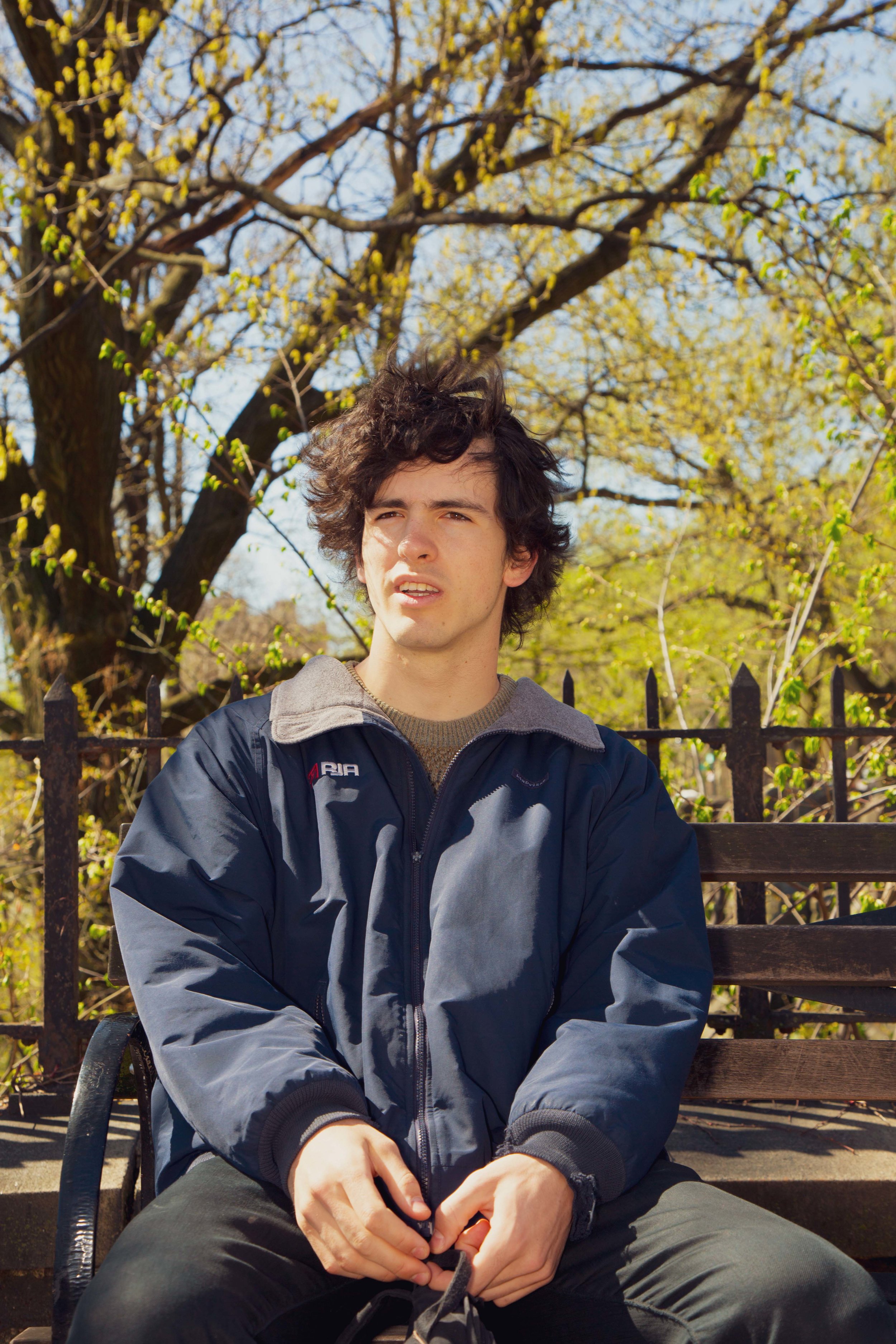


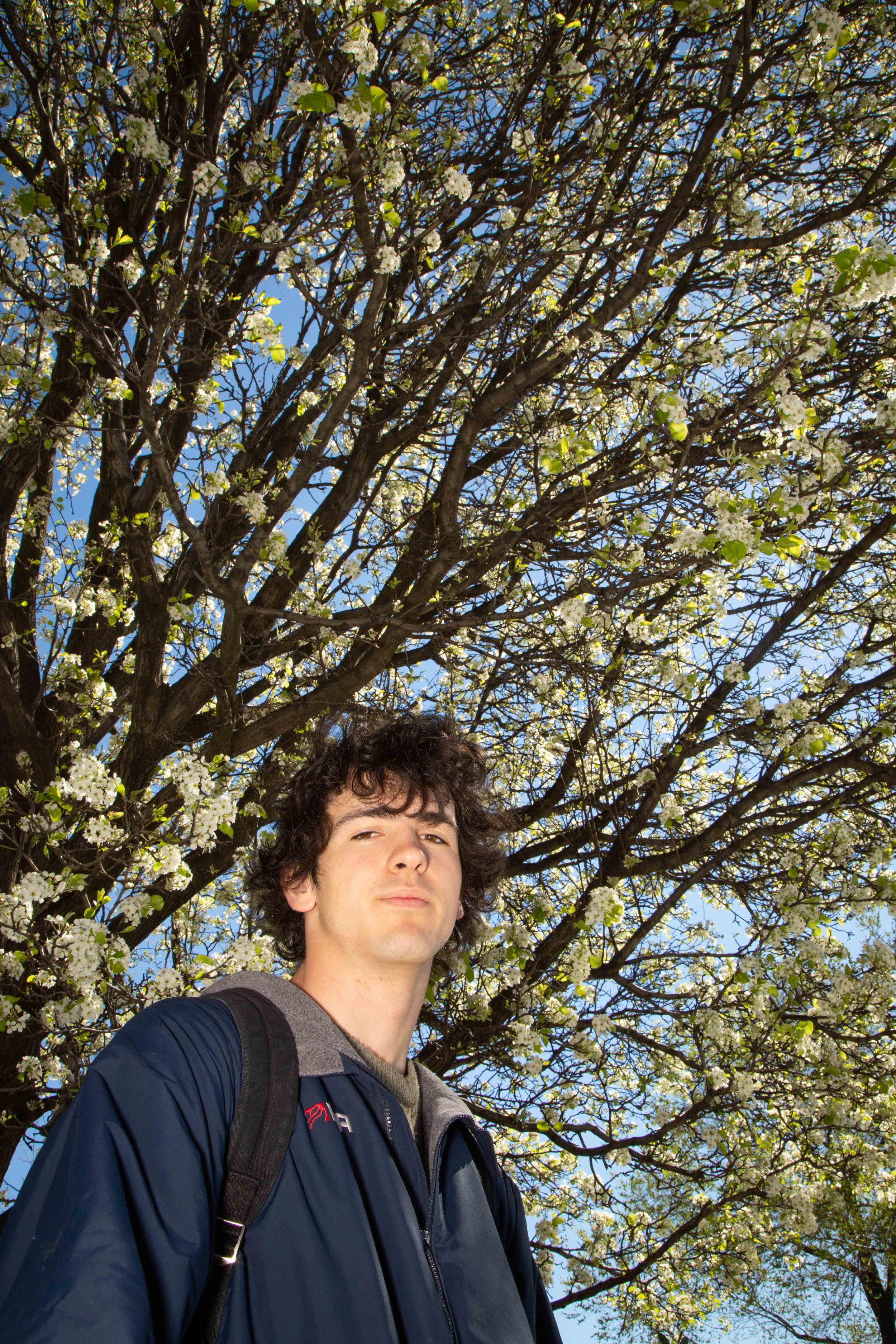
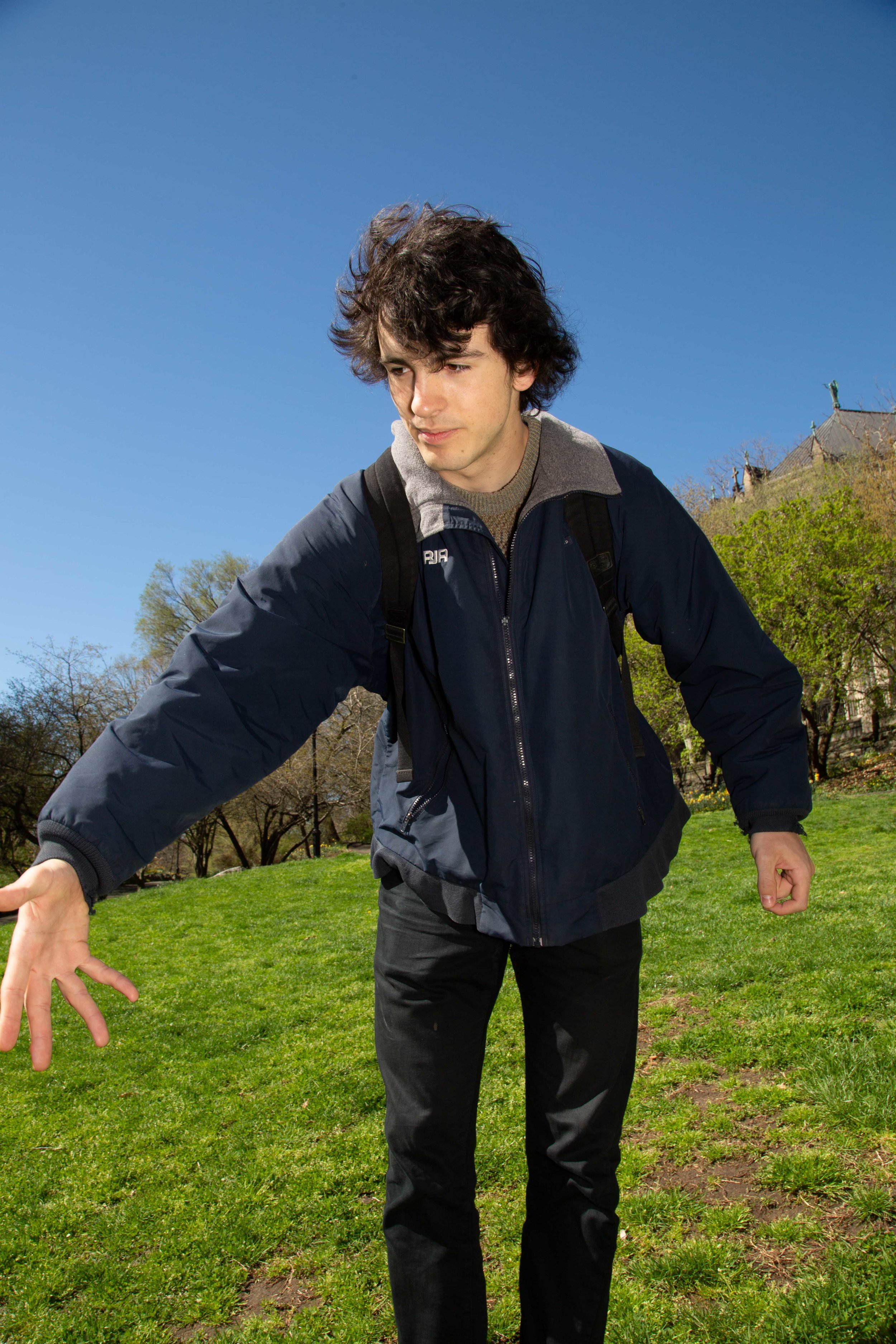

Interview by Zöe Sottile
Photos by Pedro Damasceno
Luis Collado is a junior from Chicago studying Electrical Engineering in SEAS. He’s also the technical director for WBAR, an engineer at CU Records, and plays guitar, drums, and bass. His music mixes elements of rock, garage, punk, and psychedelic styles to engage with questions of desire and attainment.
When did you start making music?
I started by making beats around freshman year, after eighth grade. I got my first Ableton software the summer after eighth grade. I was really into dubstep [laughs]. So I entered a remix competition for a Lollapalooza artist with my friend Noah. And I had a general idea of resonance and frequency and filter control to make things sound dubstep-y. I bought Ableton for that, and I ended up forgetting about it. And then I plugged my guitar straight into my computer and started making really, really bad sounding, slimey, loose, glassy, recordings of me playing guitar over programmed drum tracks that were more like tests. And then I played in a couple bands that were very bad and classic rock-oriented. But I started getting a feel for recording and what sounded good where.
I tabled that for a bit and then I brought my interface to Columbia. I would make songs when I didn’t have anything to do at night, and I got a little better, but I still wasn’t getting the whole idea. And then I started doing CU Records, and started realizing okay, the recording experience that I have lines up with what I’ve been learning in my classes, but I’m still not really good at mixing. I downloaded a couple plug-ins and figured out how multi-band compression works, and then mixed FRET BUZZ’s album. And then I just started recording things of various levels of shittiness and hi-fi-ness and just messing around with techniques to try to make them sound better. And now I try to make at least one song a month if not more.
When did that goal start?
At the beginning of this semester. I was having a conversation with my friend Leo, and he [asked] ‘can you just make songs,’ and I was like yeah, and he said, ‘if I was you I would be nonstop making songs.’ And so I [realized] I should probably do that. I have all this time and all these people to collaborate with, so there’s no reason not to take advantage of that. Mostly because I derive a lot more purpose and happiness from producing things rather than chilling or going out. Don’t get me wrong, I love chilling and going out. But I think it’s much more lasting to make something that remains.
Do you usually make music regularly or does inspiration come spontaneously?
I get inspired and then I take it too far. I’ll sit down for a bit and really want to record something and then I’ll probably record three songs. Maybe one I’ll mix while I’m recording it; but for the most part, I’ll just be recording things and be like, ‘oh I’ll mix it later.’ And then if I’m bored doing homework I’ll be like ‘alright, study break’ and pull up the files from whenever and mix them. I’ll end up spending an hour or an hour and a half on that study break. I don’t do it like homework - it definitely ends up being spontaneous. It’s a pain in the ass to get everything set up; but once everything’s set up, I try to just get all the ideas [out]. I keep a ton of Voice Memos and all of them are waiting to be turned into a song. It’s just a question of the time.
Tell me about your involvement with CU Records.
I got involved with CU records because it was adjacent to Rare Candy, and then it really became different. I feel like people try to talk a big game about recording being difficult. Expensive recording is expensive, but that’s it. If you know your way around a limiter and reverb and compressor, then you can make something that doesn’t sound that bad. I’ve been trying to impart that framework towards recording onto other people. The [message of the] place is like: there’s mics here, record it no matter how bad it sounds. And maybe that makes you trust your band more when you have a physical product of your own demo.
How does your schoolwork intersect with your music?
There are a ton of intersections, at least with recording and mixing. You learn how to make amplifiers in the classes that I’m taking now. If I were to go to grad school, I would learn to make digital-to-analog converters and analog-to-digital converters. It really demystifies [recording] - it’s really why I treat a lot of things with disrespect, because they’re not very blackboxed. I’m like, ‘oh this thing is actually kind of cheap, it just looks big and fancy.’
The reason that I’m an engineer is that academically I like questions that are puzzles, rather than things that you yourself are trying to work through [like] an essay. Part of me being able to do things for WBAR and do things for CU Records and record stuff is directly related to the intuition built through Electrical Engineering in particular.
What was it like to transition from mostly making music alone to performing for an audience?
Dude, it’s so hard to sing and play guitar at the same time. That shit is impossible. I tried to sing a song for my girlfriend in high school, and it was so difficult to just say anything while playing the guitar. It was like walking and chewing gum at the same time. I also didn’t know how important it was to be able to hear yourself while you sang. There’s a video of me at Snock just not hitting the right notes. And everyone was very supportive, but I was really screwing up. It was tough to do the singing thing, and it was tough to be yourself on stage, because a lot of the time stage fright makes you avoid doing things that are wacky or funny or otherwise in character in favor of not messing up. So you can seem closed off and stressed out on stage. And then letting go - knowing that you’re yelling and not feeling weird about it. Those were all tough, but it’s super fun and everyone is super supportive. Once you do it once, you [see] alright cool, I can do it again.
Do you like performing now?
Yeah. I was super stressed about it in the beginning, I would tremble. Now I still kind of tremble, but I’m a little better. It’s no longer my first rodeo.
You mentioned the importance of knowing what you sound like. Can you expand on that?
The expression that you’re doing, playing the notes, is so different from the expression that everybody else is picking up from the amplified sound. I wish I could clone myself at events, so I could have me doing whatever instrument I’m doing, and then one of me front row, and then one at the back of the room, and have their input. I have a certain idea in mind, and I’ve become nitpicky about it by running sound at so many events. I want to play the bass, but I also want to know how the bass sounds. You need to reconcile the two. Ultimately, what it comes down to is having a sound person as part of your band, which is difficult.
Tell me about how your EP, FRET BUZZ, came to be.
I met Ryan [Render], the drummer, at a party, and he had just gotten out of a psych[edelic rock] band. I thought that was so cool. For him it was old news, but for me it was new news. And then I ran into him at a CU Records meeting. We got assigned to be engineers together. Our first recording session together, we laid down the first track, and we kept coming back with Voice Memos. Then his roommate [Luke Kowalczyk] joined in on bass and Charlotte Force joined in on vocals. We recorded the EP over spring break [of sophomore year]. How strong we vibed ended up being the root of a lot of the songs. It was the first thing I really put out. I’m pretty proud of it. Once I had that out, I was like, ‘now I can do anything.’
Genre?
What’s cool about Spotify now is artists’ playlists, because you can see the ways ideas behind the music are related across certain genres. Genre is useful, but I think understanding what the band is going for is also critical, or understanding the goals that they have: what they were trying to communicate and not just sound like. Making things just about genre can be reductive. When I try to use well-defined genres to describe the mix that I like to go for, I end up naming seven genres, none of which I incorporate strongly enough to be visible. Which is why I end up going for moods. I’ll be like ‘this song is sunglasses, foggy night.’
Tell me about your new band, Working Out.
I made solo music all of fall semester. Spring semester, I was like, ‘okay, new band time.’ I met Maddy [Tipp] freshman year, and she was super dope from the get-go because she’d already been in bands for a bit. I forget who contacted who, but Maddy and I decided to make music together and then I met Joey Recker. We had the first practice, and it was cool that we all vibed with each other; we understood the music but also got along. And then since I was so excited to expand on these ideas I just blurted out a ton of things. I gave them like fifty five percent and they filled in the rest, and Joey brought in songs. We tweaked the half-baked ideas and practiced, practiced, practiced. Now I’m pretty excited for this blend of [music that is] danceable but says something new and also [is] contemporary, in that it converses with current music. There’s high energy songs and lower energy songs. And it’s cool because I can say we’re “Working Out.”
Luis curated a playlist of his major musical inspirations just for Ratrock. Check it out below.
